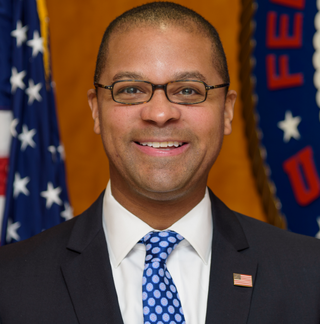FCC: Huawei, ZTE Are National Security Threats
No big surprise, but the FCC has decided that the tech of Chinese telecoms Huawei and ZTE are indeed national security threats and will exclude them from broadband subsidy money, starting immediately.
The FCC had tentatively, and unanimously, concluded that was the case, as has the Trump Administration and many members of Congress. It has also set up a mechanism to figure out other suppliers who might need similarly to be excluded.
Related: ORAN 5G Bill Added to Must-Pass Legislation
Both Huawei and ZTE have argued they are not controlled by, or beholden to, the Chinese government and are thus not a security risk, but found few takers for the argument among policymakers or legislators.
The FCC proposed to prevent any carrier from getting Universal Service Fund broadband subsidies if their network buildouts included "equipment or services from companies posing a national security threat," tentatively concluding Huawei and ZTE fitted the description.
Congress subsequently voted to mandate that exclusion of suspect tech and the FCC plans to declare its already-in-process exclusion fulfills that mandate.
"[T]he FCC’s Public Safety and Homeland Security Bureau formally designated two companies—Huawei Technologies Company (Huawei) and ZTE Corporation (ZTE), as well as their parents, affiliates, and subsidiaries—as covered companies for purposes of the agency’s November 2019 ban on the use of universal service support to purchase equipment or services from companies posing a national security threat," the commission said "As a result of today’s action, money from the FCC’s $8.3 billion a year Universal Service Fund may no longer be used to purchase, obtain, maintain, improve, modify, or otherwise support any equipment or services produced or provided by these suppliers."
Multichannel Newsletter
The smarter way to stay on top of the multichannel video marketplace. Sign up below.
“Both companies have close ties to the Chinese Communist Party and China’s military apparatus, and both companies are broadly subject to Chinese law obligating them to cooperate with the country’s intelligence services," said FCC chairman Ajit Pai. "We cannot and will not allow the Chinese Communist Party to exploit network vulnerabilities and compromise our critical communications infrastructure."
Both Congress and the FCC are working on a process, and funding, a rip and replace program to get suspect tech out of existing networks.

“Network security is national security," said FCC commissioner Geoffrey Starks. "Today’s actions will help secure our networks against new threats from Huawei and ZTE equipment. We must not, however, lose sight of the untrustworthy equipment already in place. Last year, I called for the FCC to find the untrustworthy equipment in our networks, to fix the problem by instituting a replacement program, and to fund the replacement of that equipment. Find it. Fix it. Fund it," he said. "The Commission has taken important steps toward identifying the problematic equipment in our systems, but there is much more to do."
Related: ORAN Bill Added to Must-Pass Legislation
That includes moving to an ORAN approach to network architecture, he said, which will "use standardized hardware and interoperable interfaces to enable networks to combine equipment from multiple vendors."
“We cannot treat Huawei and ZTE as anything less than a threat to our collective security,” said Commissioner Brendan Carr. “Communist China intends to surveil persons within our borders and engage in large-scale, industrial espionage. Nothing short of prohibiting subsidized Huawei and ZTE gear from our networks could address this serious national security threat. After all, Chinese law does not meaningfully restrain the Communist regime given its authoritarian nature."
“This is a great development and a critical step forward in protecting America's national and economic security," said Mike Rogers, chairman of 5G Action Now and former chair of the House Intelligence Committee. "I first warned about the threat of Huawei and ZTE in 2012 with my colleagues on the House Intelligence Committee. Since then, the threat posed by these companies and the Chinese Communist Party, with which they are directly linked, has only grown. I applaud the FCC and Chairman Pai on this decision.”
Contributing editor John Eggerton has been an editor and/or writer on media regulation, legislation and policy for over four decades, including covering the FCC, FTC, Congress, the major media trade associations, and the federal courts. In addition to Multichannel News and Broadcasting + Cable, his work has appeared in Radio World, TV Technology, TV Fax, This Week in Consumer Electronics, Variety and the Encyclopedia Britannica.

